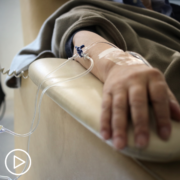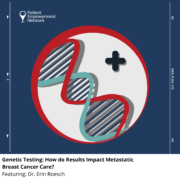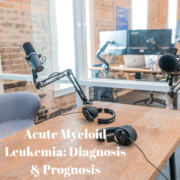Advocating for Key AML Testing: Advice From an Expert
Advocating for Key AML Testing: Advice From an Expert from Patient Empowerment Network on Vimeo.
Dr. Hetty Carraway, an AML specialist at Cleveland Clinic, shares advice on advocating for yourself when diagnosed with AML, underscoring the importance of asking questions, and including your caregiver as part of the conversation.
Dr. Hetty Carraway is Director of the Leukemia Program at Cleveland Clinic. Dr. Carraway cares for patients with acute leukemia and bone marrow failure states. Learn more about Dr. Carraway, here.
Related Resources:
Transcript:
Katherine:
What advice do you have for patients when it comes to asking for appropriate testing and speaking up in their own care?
Dr. Carraway:
This is so important. I think patients are leery to stir the pot or be difficult. I think coming from a place of inquiry, teach me about this, that, or the other thing, help me understand this, that, or the other thing – I would like you to show me why this decision or talk with me about why this decision versus another decision might be better for me compared to somebody else.
I can’t underscore the importance of advocating for yourself and asking questions about why am I getting this drug? What are the side effects to this drug? What is my prognosis? What is different about my case versus somebody else’s situation? How do I best prepare myself in getting ready for the therapy that I’m about to go through?
Those are all important questions that patients should ask. They should certainly have people, if possible in their family be advocates for them. I welcome that, and I think that that’s a really important part of going through this type of therapy for any patient. Your physician should welcome having your involvement in that. Don’t be shy about that. It’s your health, and any investment in that the most important people in that is inclusive of you and your caregivers. They should be a welcome part of the team.













